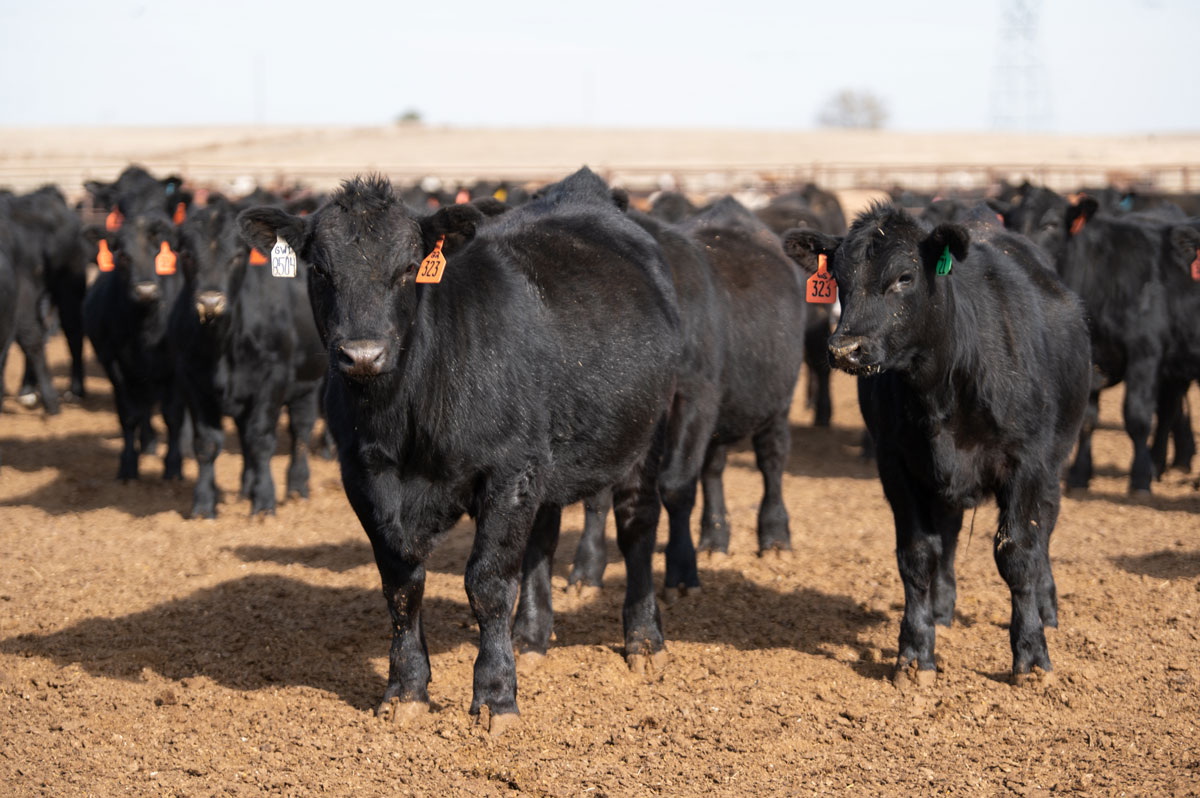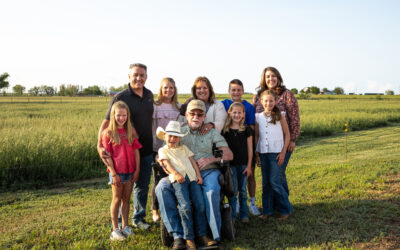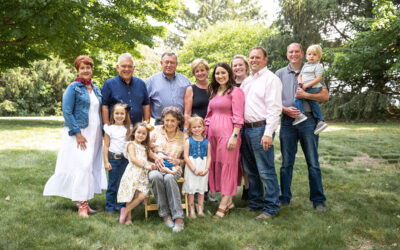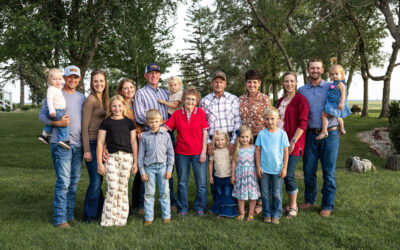
Backgrounding can add value, flexibility
How backgrounding may boost feeder calf value
by Morgan Boecker
July 15, 2021
Getting maximum value when marketing cattle is a constantly evolving process that takes careful planning.
USDA National Agricultural Statistics Service 2017 data reports 70% or more of beef calves are born in the spring. Come fall, this leaves the glut of 550 pound calves at a prices disadvantage compared to their contemporaries that are held and sold after the first of the year.
Backgrounding calves can open gates to new revenue paths, though not without risk. When more cattle are sent to the grazing fields or grow yards, there’s a shift in the seasonal pattern of the market and more opportunity to take advantage of better prices.
Weight adds dollars
Even for just a couple months, backgrounding can add weight and gross income without using limited grazing resources year-round to stock more cows.
Adding weight may boost income, but requires strategy, says Dan Loy, director of the Iowa Beef Center at Iowa State University. He suggests backgrounding the lighter half of steers to reach heavier average sale weights.
“If you market the heavier ones direct from weaning, and have done that for years, you’ll have a more uniform group,” he says. “That in itself may help the price on those heavier calves.”
If it seems overwhelming to add a backgrounding enterprise, don’t be afraid to hire expertise, says Chad Cargill, of Cargill Ranch LLC, Medicine Lodge, Kan. He provides services for larger cattle feeders at his custom yard, with help from a nutritionist, veterinarian and environmental consultant, plus pharmaceutical representatives.
Every producer has different needs, but the staples are the same. Bunk space with some kind of concrete apron or a grass trap on which feed can be delivered with a mixer wagon, are necessities, as are a chute and working facilities to vaccinate or treat sick calves.
“These resources are a substantial investment but necessary for successful backgrounding,” advises Dale Blasi, extension beef specialist at Kansas State University.

Time boosts health
Calf health is often the highest concern for feedyards, so this also gives calves’ immunity time to get through the most stressful event in their lives.
“To me, backgrounding should include preconditioning,” Loy says. “That verifies health and lets the vaccines kick in, plus getting calves eating out of a bunk and drinking from new waterers.”
The dollar-advantage of weaning is well clear. According to the 2020 Iowa Precondition Sales data, Loy says preconditioned calves vaccinated for respiratory and clostridial disease, treated for parasites and weaned for 45 days brought at least $50 per head more than unweaned contemporaries.
“One issue is easy to handle, but those things together add up to bigger issues,” Cargill says.
As calves mature, their immunity improves. That’s important as natural beef labels and other process verified programs become popular. The biggest challenge for those kinds of programs is ensuring calves’ health so they aren’t disqualified due to antibiotics.
Yesterday’s most valuable feeder calf may only be average moving forward. That’s because buyers still look for groups with uniform weight and hide color, but verification is gaining importance. The market may soon require certified pre-weaned and vaccinated, age-source-and-genetics verified, records for performance and carcass history, along with animal welfare claims.
When it’s time to head down a new road of marketing, learn from others who have made the trip before you, Blasi suggests.
Those are the lessons from peers and mentors, he adds. Participate in a marketing network, or join local and state beef association meetings to learn from each other.
You may also like
Magnum Feedyard Earns Certified Angus Beef Award
While Magnum hasn’t always had pens filled with Angus-influenced cattle, they’ve invested in infrastructure, improved quality-based marketing and sought better genetics. Their dedication to detail and employee appreciation drive their success to high-quality beef production.
Michigan Angus Family Earns Ambassador Award
Seldom Rest Farms in Michigan, known for show-ring success, receives the CAB 2023 Ambassador Award for sharing their beef production story with Meijer grocery communications team and other CAB partners. The Foster family shares their passion for Angus cattle while fostering connections within the beef supply chain and promoting the Angus breed and CAB’s role in the industry.
North Dakota Partnership Earns CAB Progressive Partner Award
The Bruner and Wendel families earned the 2023 CAB Progressive Partner award by selling high-quality beef through Dakota Angus, LLC, as part of the CAB Ranch To Table program. They focus on their commitment to quality, data-driven decisions, achieve impressive CAB and Prime percentages and offer high-quality beef directly to consumers in their communities.



